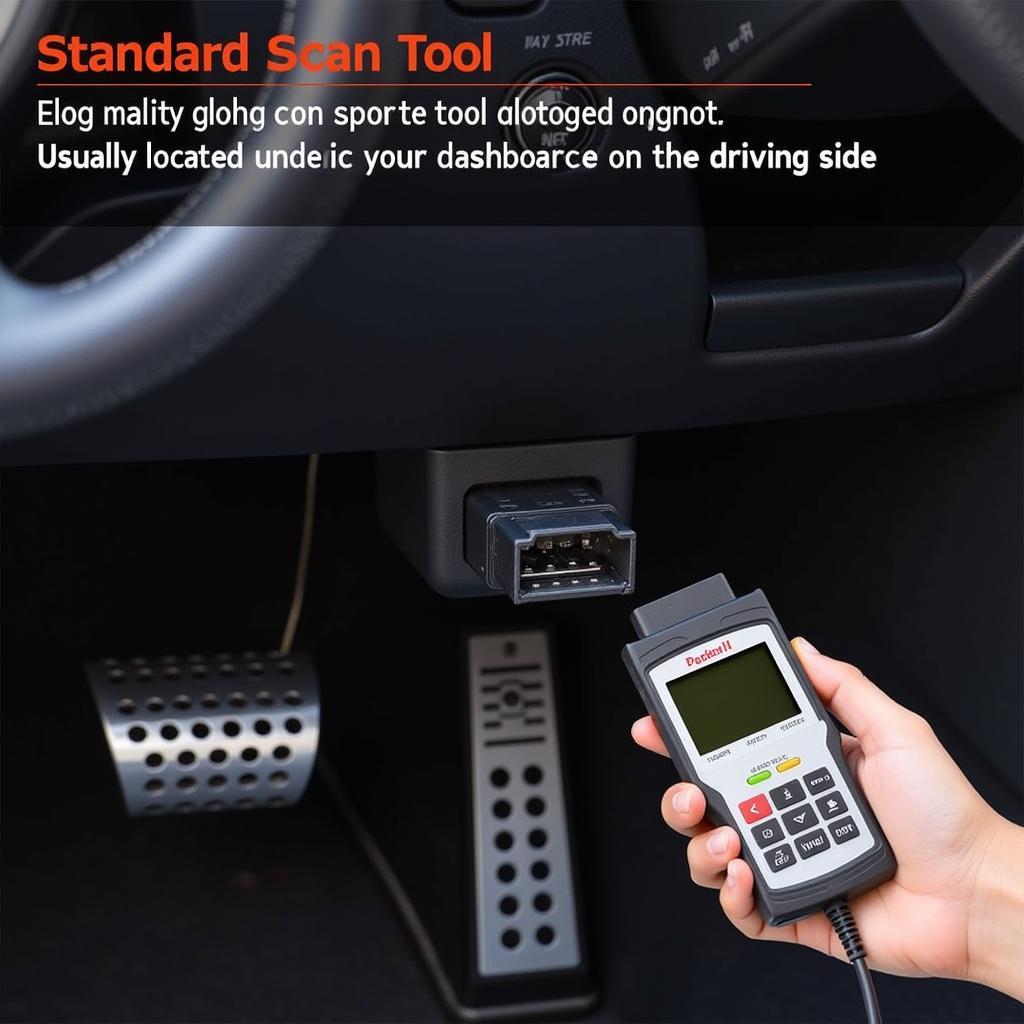Automotive technology is constantly evolving, and with it comes the need for sophisticated diagnostic tools. Gone are the days of simple code readers. Today’s vehicles require advanced level scan tools that can delve deeper into a vehicle’s systems to provide accurate and detailed information. Whether you’re a seasoned mechanic or a car enthusiast looking to take your troubleshooting skills to the next level, understanding and utilizing these advanced tools is essential.
Why Choose an Advanced Level Scan Tool?
Basic code readers can only retrieve generic diagnostic trouble codes (DTCs). This limits your ability to diagnose the root cause of a problem, as a single DTC may have multiple underlying causes. Advanced level scan tools, however, offer several advantages:
- Comprehensive System Coverage: Unlike basic code readers, these tools can access and communicate with multiple electronic control units (ECUs) within the vehicle, including engine, transmission, ABS, airbag, and more.
- Live Data Streaming: Monitor real-time sensor data, such as engine RPM, coolant temperature, and oxygen sensor readings, to diagnose issues as they occur.
- Bi-Directional Controls: Perform active tests on various components, like activating solenoids or cycling fuel injectors, to pinpoint faulty parts.
- Advanced Coding and Programming: Access and modify vehicle configuration settings, such as key fob programming or injector coding, often requiring dealer-level software.
- Technical Support and Updates: Reputable manufacturers provide regular software updates and technical support to ensure compatibility with the latest vehicle models and technologies.
Key Features to Look For
Choosing the right advanced level scan tool can be daunting. Here are some crucial factors to consider:
- Vehicle Coverage: Ensure the tool supports the make, model, and year range of the vehicles you work on.
- Software Features: Look for tools offering the specific functionalities you need, such as bi-directional controls, special functions, or coding capabilities.
- User Interface: An intuitive interface with a clear display and easy navigation is crucial for efficient diagnosis.
- Durability and Build Quality: Opt for a well-built tool that can withstand the rigors of daily use in a garage environment.
- Updates and Support: Regular software updates are essential to stay current with the latest vehicle technologies.
Utilizing Advanced Scan Tools for Effective Diagnosis
Purchasing an advanced scan tool is just the first step. Mastering its functionalities is crucial for effective vehicle diagnostics. Here’s a simplified approach:
- Connect the Tool: Connect the scan tool to the vehicle’s diagnostic port (OBD-II port) and turn on the ignition.
- Read and Interpret DTCs: Retrieve any stored or pending DTCs and consult reliable sources to understand their meaning and potential causes.
- Analyze Live Data: Monitor live data streams from relevant sensors to identify any abnormal readings or patterns.
- Perform Active Tests (If Necessary): Use bi-directional controls to test specific components and isolate the root cause of the issue.
- Consult Technical Resources: Refer to repair manuals, online databases, or technical support for further guidance on specific DTCs or vehicle systems.
Common Applications of Advanced Level Scan Tools
These tools are indispensable for a wide range of automotive tasks:
- Engine Diagnostics: Identifying misfires, fuel system issues, emissions problems, and sensor failures.
- Transmission Troubleshooting: Diagnosing shifting problems, torque converter issues, and electronic solenoid malfunctions.
- ABS and Traction Control Systems: Analyzing wheel speed sensors, ABS modules, and traction control components.
- Airbag System Diagnosis: Retrieving crash data, testing airbag modules, and diagnosing sensor faults.
- Body Control Module (BCM) Issues: Troubleshooting issues with power windows, door locks, lighting systems, and other BCM-controlled components.
Expert Insight
“Investing in a high-quality, advanced level scan tool is one of the smartest decisions an auto repair shop or independent mechanic can make,” says John Smith, a seasoned automotive diagnostician with over 20 years of experience. “These tools not only save time and effort but also significantly improve the accuracy of diagnostics, leading to faster repairs and happier customers.”
Conclusion
As vehicle technology advances, the need for sophisticated diagnostic tools becomes increasingly critical. Advanced level scan tools empower mechanics and car enthusiasts alike to delve deeper into a vehicle’s systems, pinpoint problems with accuracy, and perform complex repairs effectively. By understanding the features, functionalities, and applications of these tools, automotive professionals can stay ahead of the curve and provide efficient, reliable service in an ever-evolving industry.
For all your scan tool needs and expert advice, contact ScanToolUS at +1 (641) 206-8880 or visit our office at 1615 S Laramie Ave, Cicero, IL 60804, USA.

